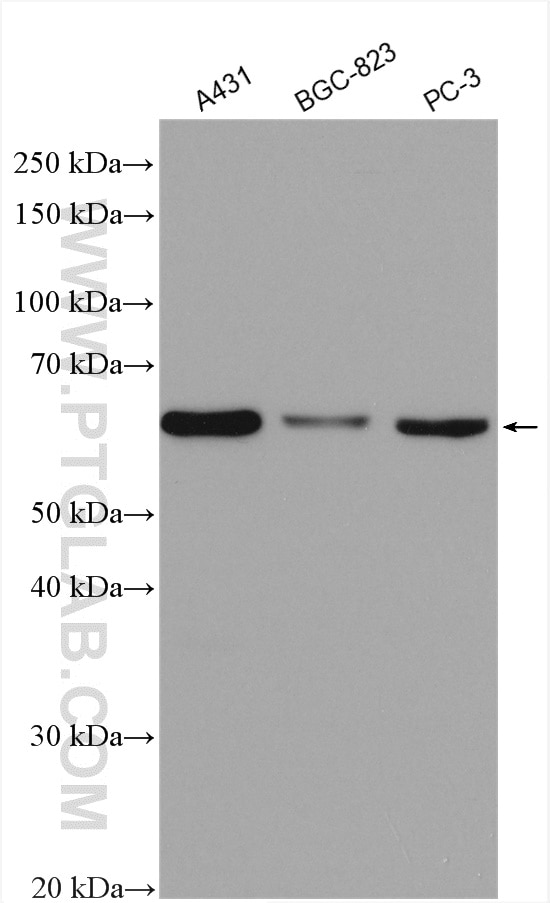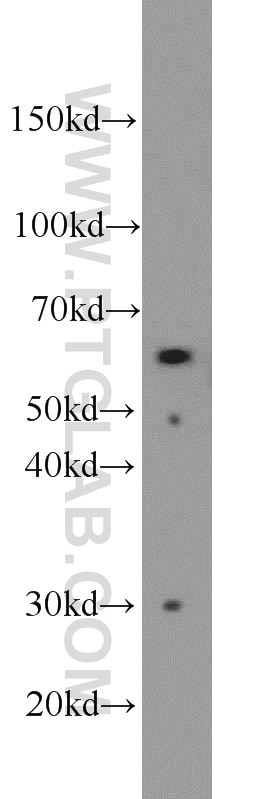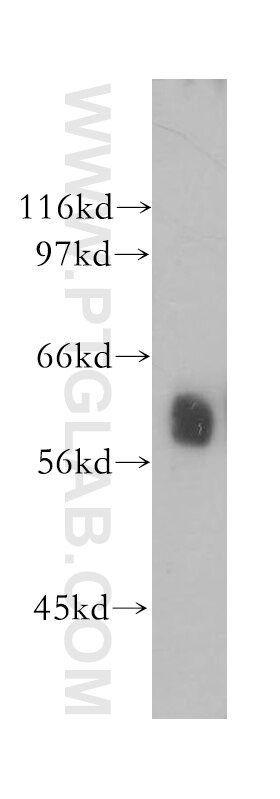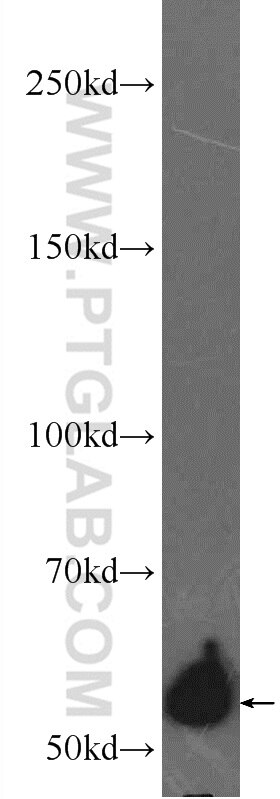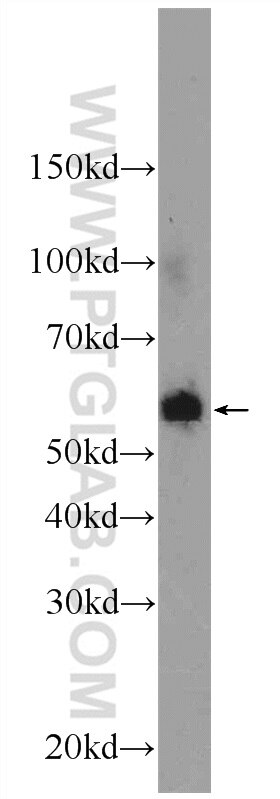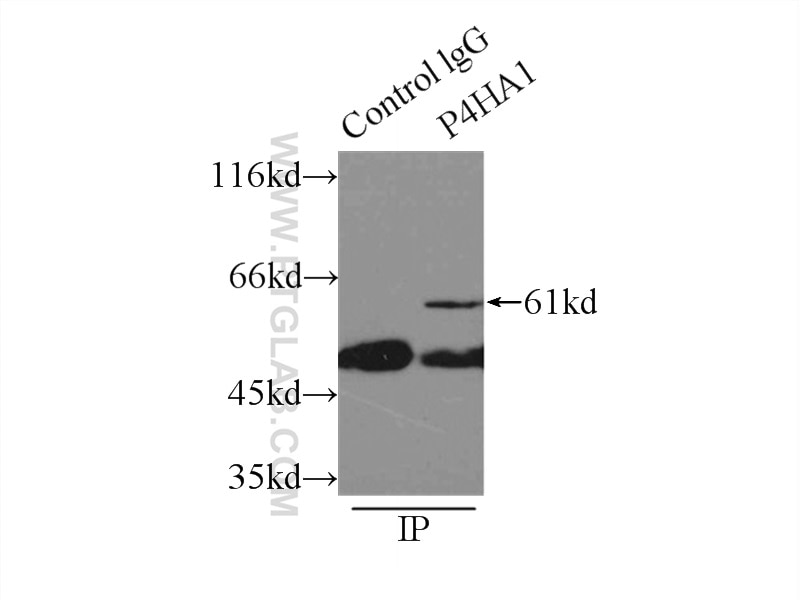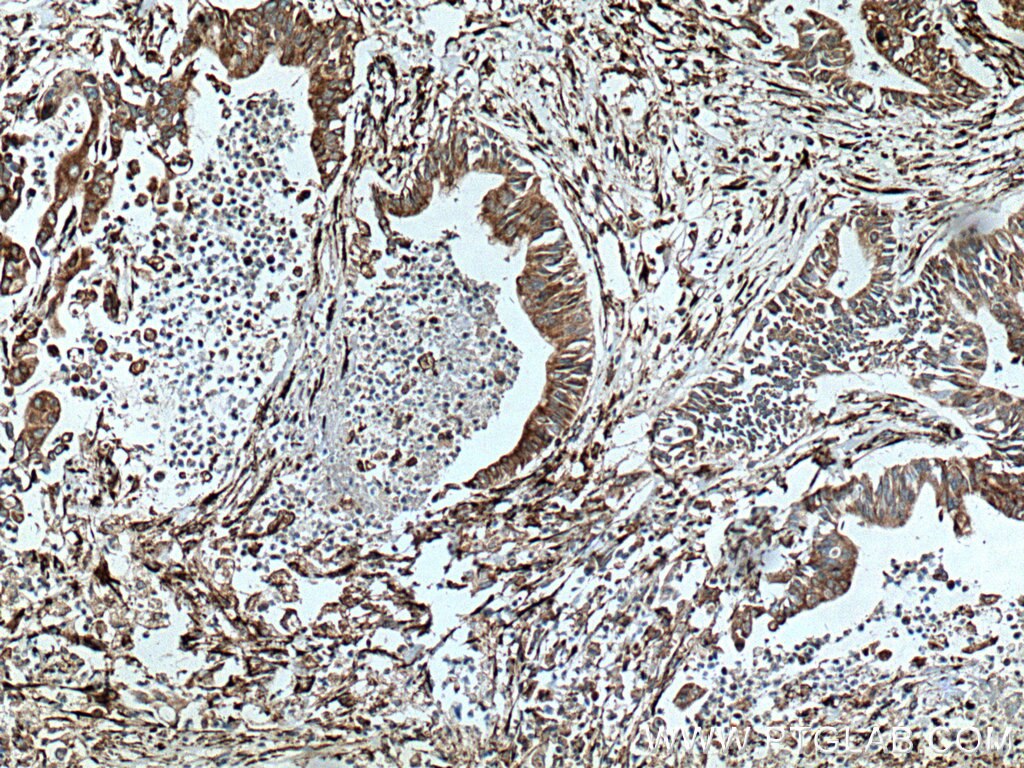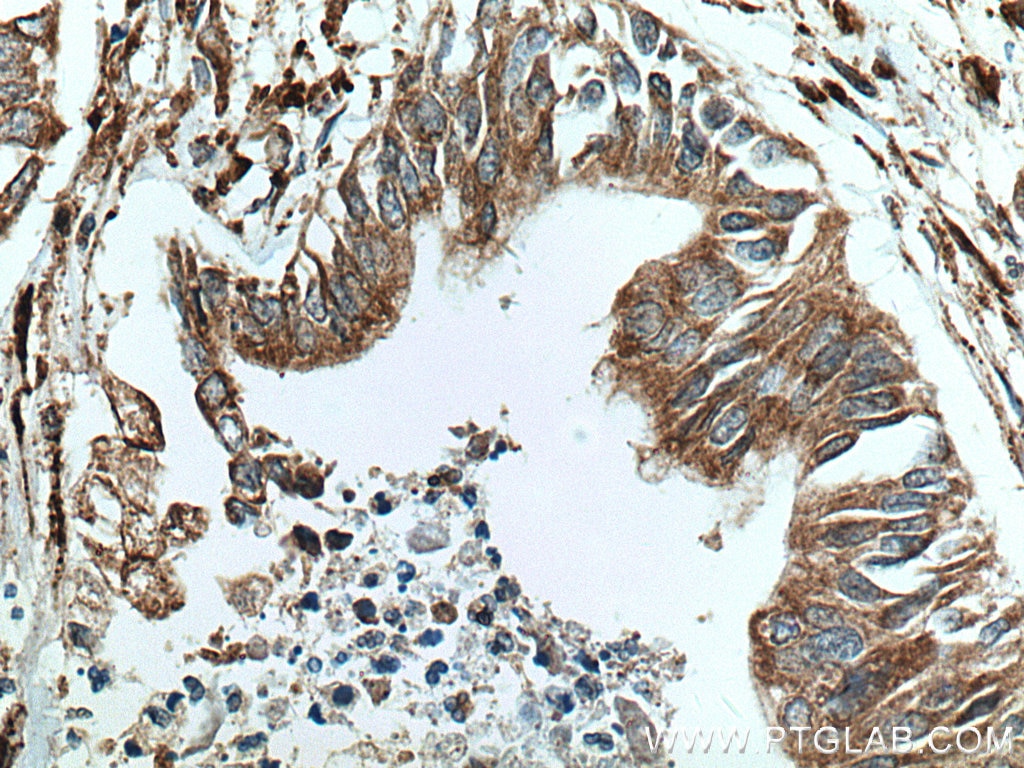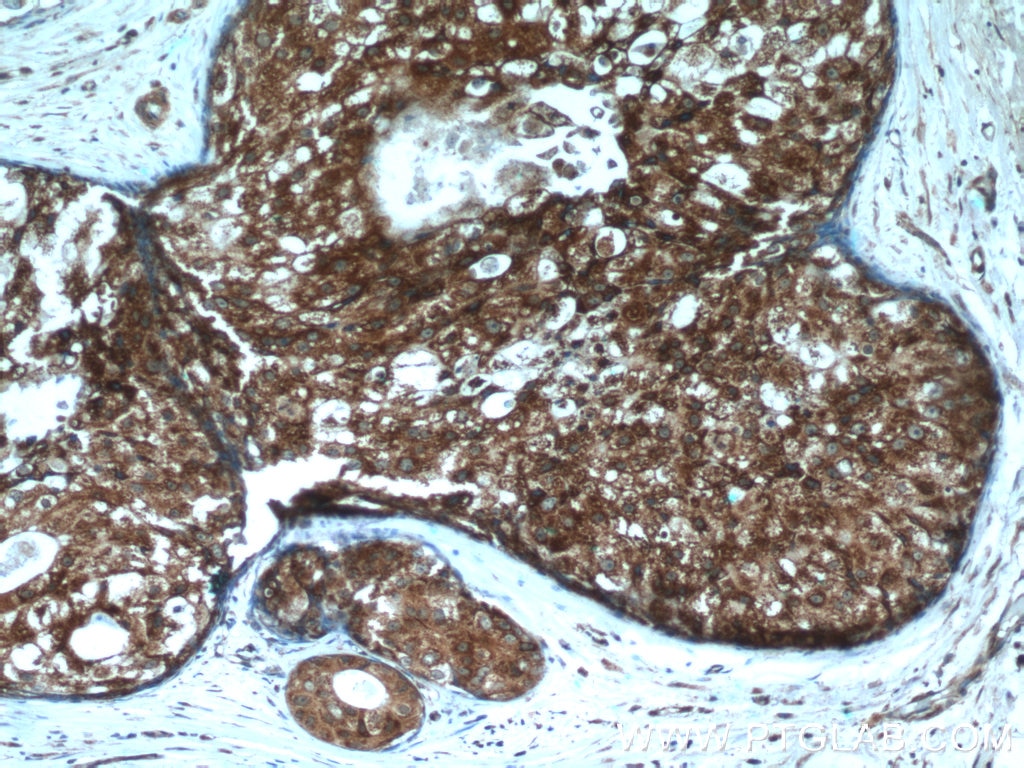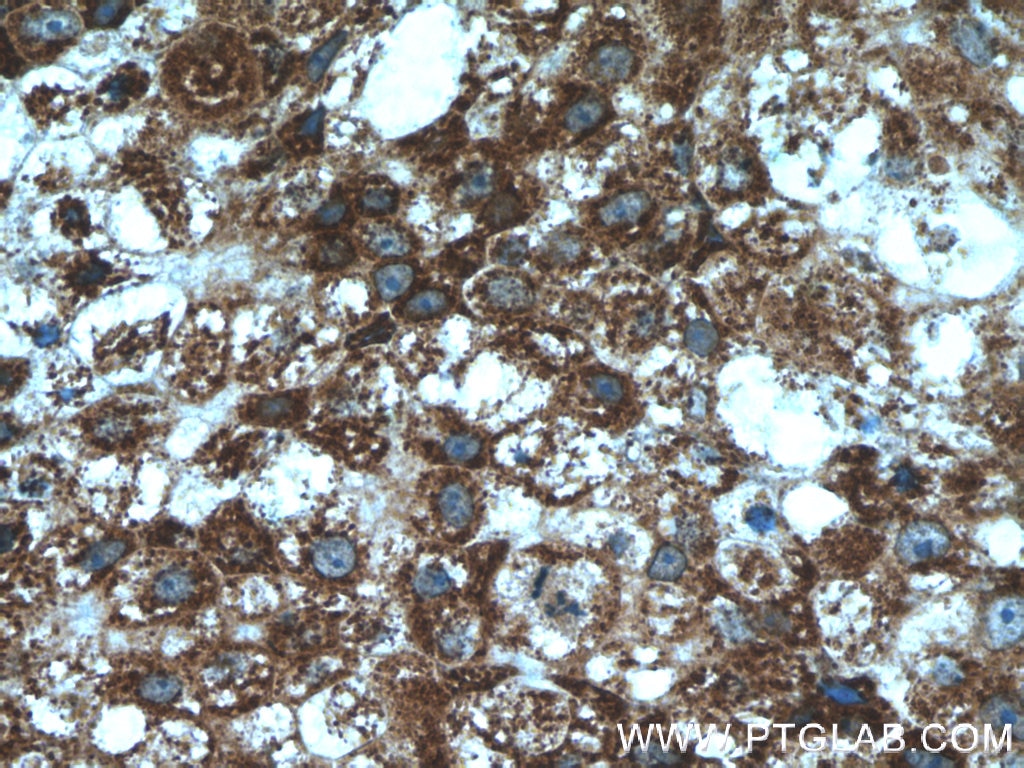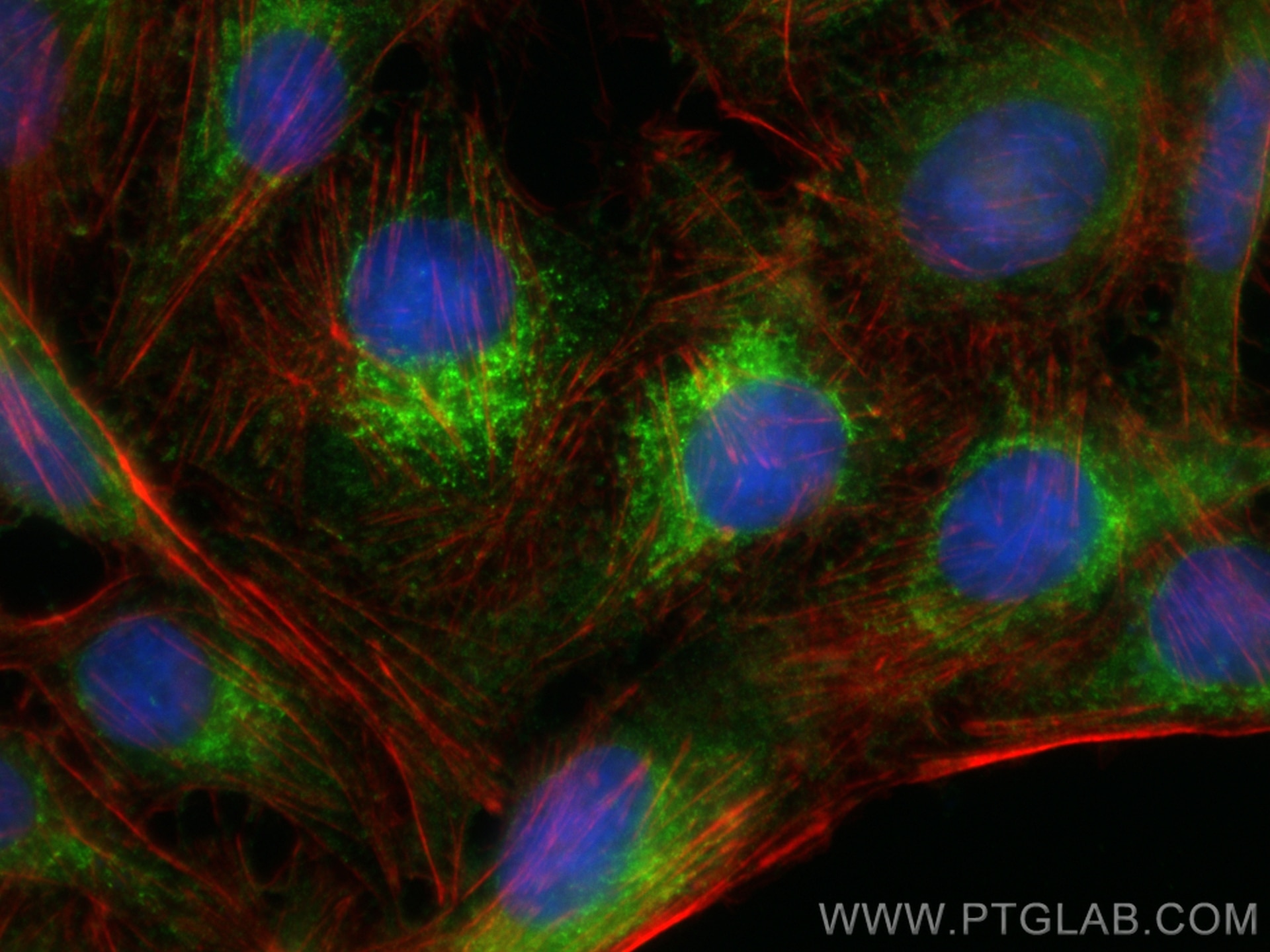Tested Applications
| Positive WB detected in | A431 cells, NIH/3T3 cells, human heart tissue, rat skin tissue, HT-1080 cells, BGC-823 cells, PC-3 cells |
| Positive IP detected in | A431 cells |
| Positive IHC detected in | human pancreas cancer tissue, human breast cancer tissue Note: suggested antigen retrieval with TE buffer pH 9.0; (*) Alternatively, antigen retrieval may be performed with citrate buffer pH 6.0 |
| Positive IF/ICC detected in | U2OS cells |
Recommended dilution
| Application | Dilution |
|---|---|
| Western Blot (WB) | WB : 1:2000-1:10000 |
| Immunoprecipitation (IP) | IP : 0.5-4.0 ug for 1.0-3.0 mg of total protein lysate |
| Immunohistochemistry (IHC) | IHC : 1:50-1:500 |
| Immunofluorescence (IF)/ICC | IF/ICC : 1:200-1:800 |
| It is recommended that this reagent should be titrated in each testing system to obtain optimal results. | |
| Sample-dependent, Check data in validation data gallery. | |
Published Applications
| KD/KO | See 9 publications below |
| WB | See 22 publications below |
| IHC | See 10 publications below |
| IF | See 3 publications below |
Product Information
12658-1-AP targets P4HA1 in WB, IHC, IF/ICC, IP, ELISA applications and shows reactivity with human, mouse, rat samples.
| Tested Reactivity | human, mouse, rat |
| Cited Reactivity | human, mouse, rat |
| Host / Isotype | Rabbit / IgG |
| Class | Polyclonal |
| Type | Antibody |
| Immunogen |
CatNo: Ag3292 Product name: Recombinant human P4HA1 protein Source: e coli.-derived, PGEX-4T Tag: GST Domain: 236-534 aa of BC034998 Sequence: PEHQRANGNLKYFEYIMAKEKDVNKSASDDQSDQKTTPKKKGVAVDYLPERQKYEMLCRGEGIKMTPRRQKKLFCRYHDGNRNPKFILAPAKQEDEWDKPRIIRFHDIISDAEIEIVKDLAKPRLRRATISNPITGDLETVHYRISKSAWLSGYENPVVSRINMRIQDLTGLDVSTAEELQVANYGVGGQYEPHFDFARKDEPDAFKELGTGNRIATWLFYMSDVSAGGATVFPEVGASVWPKKGTAVFWYNLFASGEGDYSTRHAACPVLVGNKWVSNKWLHERGQEFRRPCTLSELE Predict reactive species |
| Full Name | prolyl 4-hydroxylase, alpha polypeptide I |
| Calculated Molecular Weight | 534 aa, 61 kDa |
| Observed Molecular Weight | 61 kDa |
| GenBank Accession Number | BC034998 |
| Gene Symbol | P4HA1 |
| Gene ID (NCBI) | 5033 |
| RRID | AB_2283162 |
| Conjugate | Unconjugated |
| Form | Liquid |
| Purification Method | Antigen affinity purification |
| UNIPROT ID | P13674 |
| Storage Buffer | PBS with 0.02% sodium azide and 50% glycerol, pH 7.3. |
| Storage Conditions | Store at -20°C. Stable for one year after shipment. Aliquoting is unnecessary for -20oC storage. 20ul sizes contain 0.1% BSA. |
Background Information
P4HA1 (Prolyl 4-hydroxylase subunit alpha-1) is also known as P4HA and belongs to the P4HA family, which plays a central role in collagen synthesis. P4HA1 catalyzes the post-translational formation of 4-hydroxyproline in -Xaa-Pro-Gly- sequences in collagens and other proteins. The gene encodes a polypeptide of 517 amino acid residues and a signal peptide of 17 amino acids and the full length protein has two glycosylation sites (uniprot). It can exist as a heteromer, dimer or tetramer (refer to: GENATLAS). P4HA1 has some isoforms with the MW 61-63 kDa and 57-59 kDa.
Protocols
| Product Specific Protocols | |
|---|---|
| IF protocol for P4HA1 antibody 12658-1-AP | Download protocol |
| IHC protocol for P4HA1 antibody 12658-1-AP | Download protocol |
| IP protocol for P4HA1 antibody 12658-1-AP | Download protocol |
| WB protocol for P4HA1 antibody 12658-1-AP | Download protocol |
| Standard Protocols | |
|---|---|
| Click here to view our Standard Protocols |
Publications
| Species | Application | Title |
|---|---|---|
Cell Death Differ Developmental growth plate cartilage formation suppressed by artificial light at night via inhibiting BMAL1-driven collagen hydroxylation | ||
J Exp Med IL-17-induced HIF1α drives resistance to anti-PD-L1 via fibroblast-mediated immune exclusion. | ||
Oncotarget The miR-124-prolyl hydroxylase P4HA1-MMP1 axis plays a critical role in prostate cancer progression.
| ||
Mol Oncol Prolyl 4-hydroxylase subunit alpha 1 (P4HA1) is a biomarker of poor prognosis in primary melanomas, and its depletion inhibits melanoma cell invasion and disrupts tumor blood vessel walls.
| ||
Aging (Albany NY) Identification of a novel glycolysis-related gene signature for predicting the prognosis of osteosarcoma patients.
|

